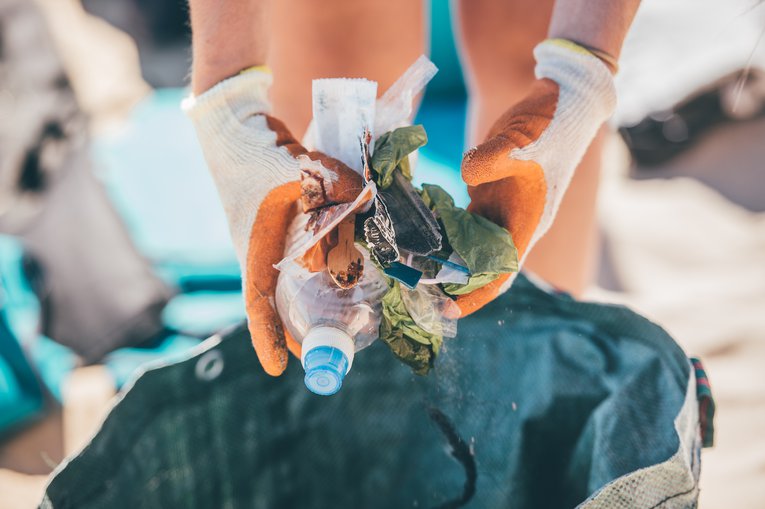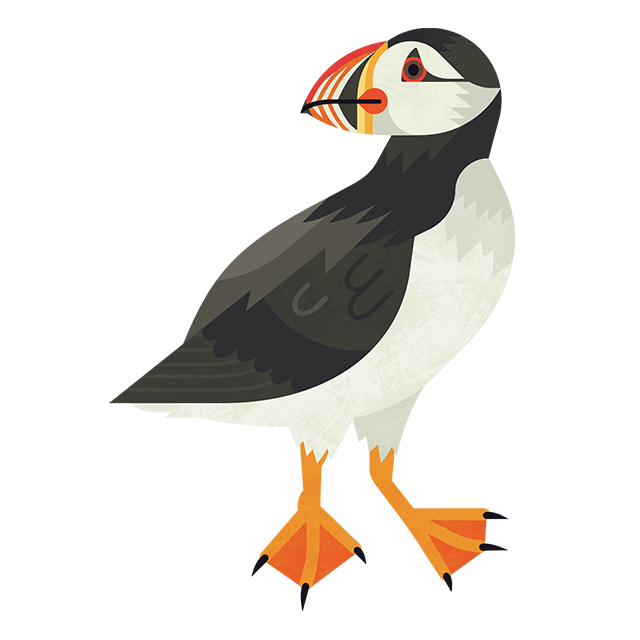
Great British Beach Clean results: Wales
3 minute read
Beach litter going down, but more cigarette stubs found on Welsh beaches than ever before
PRESS RELEASE
On average, litter found on UK beaches dropping year on year
- 82% of beach litter collected on Welsh beaches made of plastic or polystyrene
- Number of cigarette stubs on Welsh beaches at all-time high
The Marine Conservation Society’s annual Great British Beach Clean, which took place from 17th - 26th September this year, saw 6,176 volunteers head outside to clear litter from their local streets, parks and over 55,000 metres of UK beaches.
In Wales, 3,765 metres of beach were cleared and surveyed by 506 volunteers. 130 bags of litter were filled, weighing 191kg.
A total of 5064.8kg of litter was collected across the UK and recorded over the week by dedicated volunteers and the results are in.
It’s encouraging to see that the average litter recorded per 100 metres has continued to drop year on year across the UK. This year, an average of 385 items were found, dropping from averages of 425 in 2020, and 558 in 2019. In Wales, an average of 414 litter items were found, with figures steadily dropping over the last five years in the country.
Numbers of single-use plastic bags on UK beaches have continued to drop, from a high of 13 on average in 2013, down to 3 in 2021. Carrier bag charges and bans across the UK have likely had a big impact on this figure, providing a blueprint for similar legislation for other avoidable single-use plastic products.
However, plastic pieces remain the most prevalent form of litter on UK beaches, with an average of 120 pieces found for every 100 metres of beach surveyed in Wales. 82% of litter collected from Welsh beaches this year was made of plastic or polystyrene.
With so much beach litter being made from plastic, the Marine Conservation Society is continuing its campaigning for ambitious single-use plastics policies in Wales. These policies would phase out the manufacture and sale of plastic products across the board alongside other measures which would make manufacturers responsible for the pollution their products cause.
Angie Contestabile, Wales Public Affairs Manager at the Marine Conservation Society: “The Welsh Government’s current piecemeal approach to single-use plastics policy just won’t cut it anymore. While we’re seeing a downward trend in litter on beaches, we’re still seeing huge volumes of plastic washing up on our shores.
“A comprehensive and ambitious single-use plastics policy which reduces the manufacture and sale of items is the quickest way of phasing out plastic from our environment. The Senedd could address some of the most common beach litter items with a broad single-use plastic policy. We saw more cigarette stubs on Welsh beaches this year than ever before, a shocking reminder that we must take urgent action to get beach litter under control.”

Credit: Aled Llywelyn
Top five most common litter items on Welsh beaches (average per 100m)
- Plastic and polystyrene pieces (119.6)
- Cigarette stubs (64.2)
- Fishing line – angling (24.6)
- Crisp and sweet packets, lolly sticks etc (21.2)
- Plastic caps and lids (18.7)
Numbers of cigarette stubs on beaches more than doubled from 2020 to 2021, with this year’s average an all-time high for Welsh beaches.
In 2018, an average of 56 stubs were found per 100m, dropping to 33 in 2019 and just 9 in 2020. The jump to 64 this year is certainly cause for concern. As a result, the Marine Conservation Society is working with peers at ASH Wales to call for a ban on plastic in cigarette filters, and action to reduce smoking-related litter.
Suzanne Cass, CEO of ASH Wales: ‘’It is very disheartening to see that the amount of cigarette butts has more than doubled in the past year. Cigarettes are not only damaging to public health, but are also harmful to the environment. It is estimated that 4.5 trillion cigarette butts are dropped across the planet each year, which ultimately leach harmful chemicals into natural habitats. More needs to be done.
‘’I would encourage decision-makers to take on board this rise in cigarette waste, and implement stronger safeguards to protect our coastline. Our longstanding campaign Smoke Free Beaches addresses this head on, calling for beaches to be smoke and cigarette butt free. If projects such as these became policy it would protect our coastline for years to come.’’
The Marine Conservation Society included PPE items on its survey form for the first time this year*, providing a baseline from which to understand the impact and presence of face masks and gloves in the future. Levels of PPE found this year were similar to 2020, when masks were made mandatory across the UK. 32% of UK beaches cleaned found PPE litter though masks ranked 59 out of 121 for most common litter items. Inland, for the charity’s Source to Sea Litter Quest, 80% of litter picks found PPE in 2021, in comparison to 69% found in 2020.
Read more about the Great British Beach Clean, and the Marine Conservation Society’s year-round Beachwatch programme on the charity’s website: www.mcsuk.org.
-Ends-


